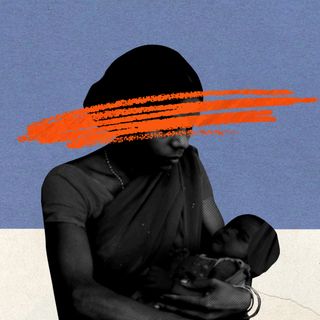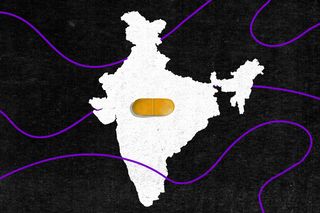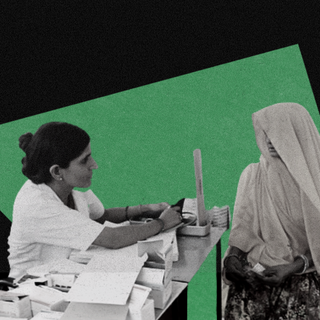
Antibiotic Overuse is Driving Drug‑Resistant Bacteria in India: ICMR
“[Because of sustained increase in drug-resistant pathogens], we have run out of options to treat patients,” a medical practitioner said.

Decades of overuse, and even misuse of antibiotics, antifungals, and antivirals have brought upon us: antimicrobial resistance or AMR. While it is already considered to have the potential to become the “next global pandemic,” a new study by the Indian Council of Medical Research (ICMR) is reinforcing the fear.
AMR is said to occur when microorganisms, or microbes — like bacteria, fungi, and viruses — evolve to become unresponsive to antimicrobial drugs. For instance, since antibiotics cannot neutralize 100% of the bacteria within a prescribed course, the few bacteria that remain, gradually evolve to resist the antibiotic. Excess usage of antibiotics, antifungals, and antiviral drugs resulting from over-prescription by doctors as well as self-medication are contributing to AMR.
Conducted by the ICMR between January and December 2020, the study found a sustained increase in drug-resistant pathogens. This has resulted in medical practitioners struggling to treat certain infections with available medicines.
The situation in India is so grave that Dr. Rahul Pandit, who heads the ICU at Fortis Hospital in Mulund, Mumbai, told Times of India, “We have run out of options left with us to treat patients.”
The World Health Organization (WHO) has already declared AMR among the 10 biggest threats to global public health. “Without effective antimicrobials, the success of modern medicine in treating infections, including during major surgery and cancer chemotherapy, would be at increased risk,” the WHO stated.
Experts fear the pandemic may have made the already grim outlook for AMR in India, even worse. Their concerns are backed by data from a study published in July, whose findings indicate a surge in antibiotic usage in India during the first wave — despite the anti-bacterial medicine not being effective against Covid19, which is caused by a virus.
Yet, AMR puts Covid19 patients at risk. “[W]e… have pathogens such as acinetobacter baumannii and klebsiella pneumoniae in which drug resistance has been increasing. This is especially concerning because K. pneumoniae is the commonest pathogen causing secondary infection in Covid19 patients,” said Dr. Kamini Walia, a scientist with the epidemiology and communicable diseases department at the ICMR, told Hindustan Times.
Related on The Swaddle:
Rising Pollution in the Ganges May Lead to Neurological Diseases: Study
However, the scientists did find the susceptibility of Escherchia coli (a common pathogen) to antibiotics has increased from 63% in 2019 to 72% in 2020. “[But] this is only a slight recovery and that too for one antimicrobial,” Dr. Walia notes.
At present, India contributes to one-fourth of the global burden of multidrug-resistant tuberculosis, and figures among countries where drug-resistant diphtheria is evolving. Additionally, in 2019, a study also found newborns in India dying of antibiotic‑resistant infections.
According to Dr. Sumanth Gandra, an epidemiologist and associate professor of medicine at the Barnes-Jewish Hospital in the U.S., who was involved in the July study, India is the “largest consumer of antibiotics in the world” and a “poster child for antibiotic misuse in low- and middle-income countries.”
Besides over-prescription and indiscriminate self-medication, usage of antimicrobials in agriculture, as well as discharge of untreated wastewater from medical facilities and pharmaceutical manufacturing plants are also contributing to AMR in the country by introducing superbugs (antimicrobial-resistant microbes) to the food chain, experts note.
However, Gandra explained further that the rise of AMR in India doesn’t necessarily mean its impact will be restricted to India alone. “Bacteria that have become resistant to antibiotics don’t have boundaries. They can spread to any person in any country,” Gandra warned in July.
“The issue of [AMR] precedes the outbreak of Covid19, and it has the potential to snowball into a public health emergency,” Dr. K. Madan Gopal, a senior health consultant at NITI Aayog, wrote in June. “We need to be cognizant of the fact that a pandemic happens once every 100 years. But, if we do not learn our lessons, the next pandemic could be that of AMR, and it will be much sooner,” he warned.
Devrupa Rakshit is an Associate Editor at The Swaddle. She is a lawyer by education, a poet by accident, a painter by shaukh, and autistic by birth. You can find her on Instagram @devruparakshit.
Related


What Makes Us Trust Our ‘Gut Instincts’
